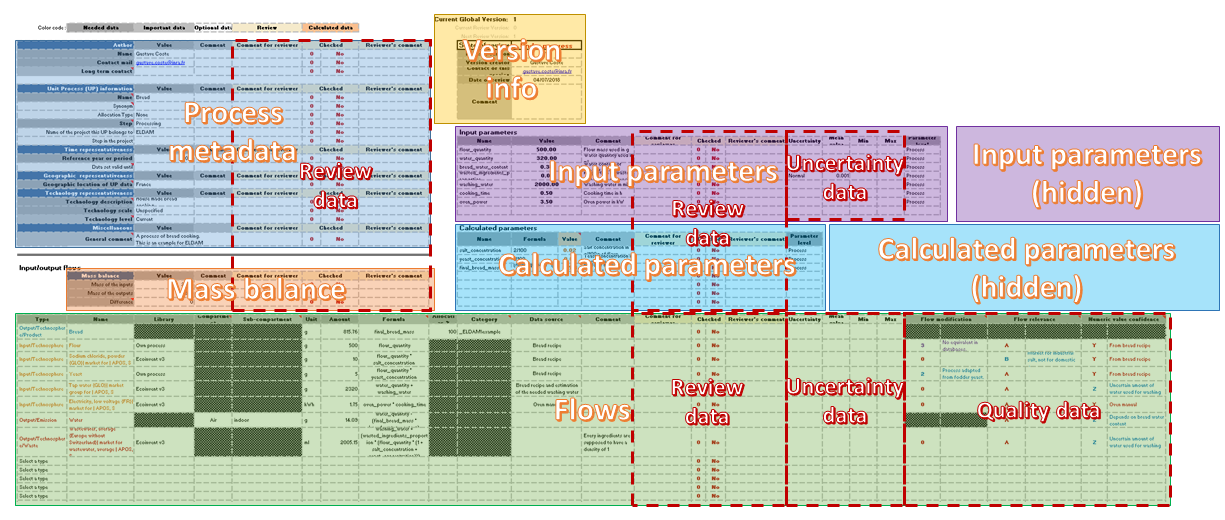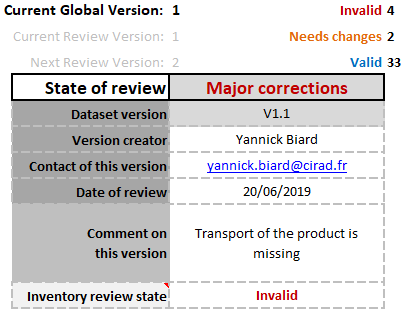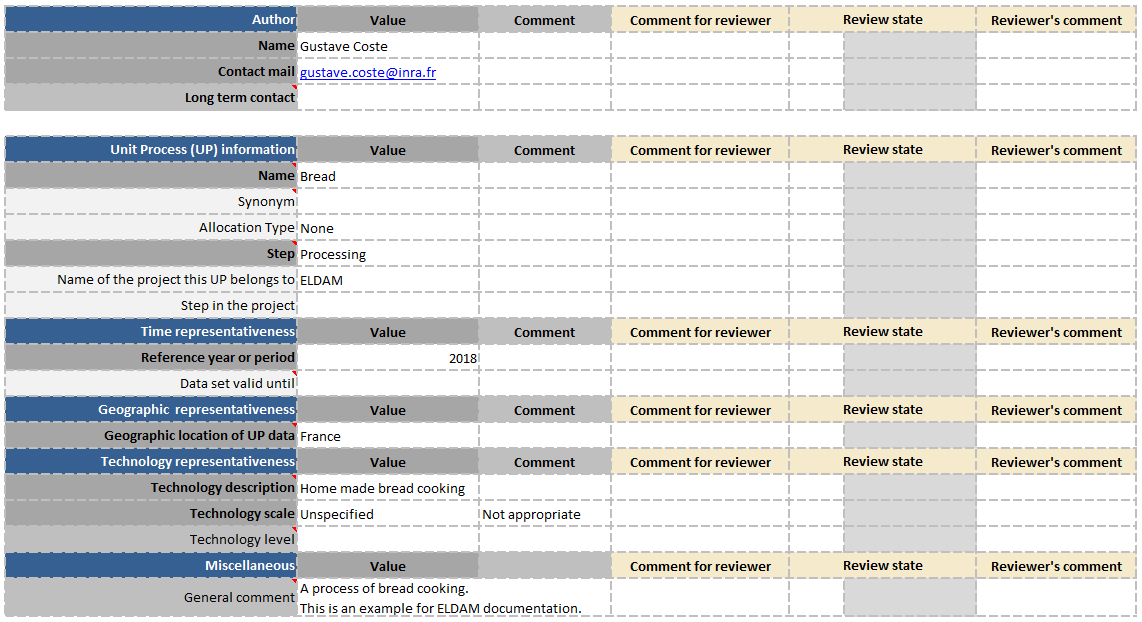Elda spreadsheet¶
ELDAM is based on a specially designed spreadsheet called Elda (ELsa DAta). It stores information on a process such as process name and flows, as well as metadata such as author contact or process technology.
The Elda spreadsheet is a .xlsm based format developed for storing and editing LCI processes data. It can be opened by MS Excel or equivalent (LibreOffice Calc for example), even if it has been designed in MS Excel 2016 and might then be more functional under this software.
The file is composed by a Status worksheet that indexes the versions of the process and one worksheet per version. For more information about the review procedure, see Reviewing LCI datasets.
Status sheet¶
This sheet summarizes the content of the Elda by indexing every review versions and their principal information.

It also indicates the Elda template version, needed to ensure backward compatibility with ELDAM.
Process sheets¶
Process versions sheets contains every information about a process and its flows and parameters.
It is divided into 6 subsections:
Version information
Process metadata
Mass balance
Flows
Input parameters
Calculated parameters
Review data (which is present on several subsections)
Note
To avoid accidental modification, the process sheet is protected by Excel. This protection can sometimes prevent non-accidental modifications. If you know what you are doing, you can unprotect the sheet by right-clicking on it and selecting Unprotect sheet.

Version information¶
This section stores information about the version of the process such as version number and date of the version. The state of the review is calculated automatically from the review state of each data.

For more information, see Elda versioning system.
Process metadata¶
This section stores general information on the data such as the process name the author name and contact or general comment on the process.

Mass balance¶
This section is mostly a tool for calculating a simple mass balance between input and output flows.

Flows¶

This section stores the process flows data. According to the flow type, some fields are not relevant and appear shaded or are mandatory and appear with a red background if they are empty. For example, inputs from technosphere should have a “Library” but cannot have a compartment.
The Amount field can be filled with values or formulas (in that case a “=” sign must be inserted before the formula). The formula can use parameters from the input and calculated parameters sections by using their names directly. The Formula field shows the formula entered in the Amount field and shall not be edited.
Due to SimaPro data model, processes cannot have mix Output/Technosphere/Product and Output/Technosphere/Waste treatment product or have multiple Output/Technosphere/Waste treatment product. In that case, the corresponding flows types will be highlighted in red.
For more information about Flow modification, Flow relevance and Numeric value confidence, see See Characterizing datasets Quality.
Input and calculated parameters¶
As in SimaPro, Elda files can use parameters for formula calculations. These parameters can be defined by a value (input parameters) or by a formula (calculated parameters). A parameter can be defined at three levels: process, project and database. Project and database parameters can be used by other processes of the same SimaPro project or database.
For calculated parameters, write the formula preceded by “=” in the Value field. The calculated value will appear in the Value field and the formula will appear in the Formula field. It is possible to use parameters in the formula by using their names directly.
For display reasons, parameters are grouped in blocks. If a block is full, a new block will appear on its right allowing the user to enter more parameters.


Review data¶
Each data of the Elda can be reviewed with the Checked field. For easier keyboard manipulation, this field uses a numeric code (0: Invalid, 1: Needs changes, 2: Valid). Comments for and from the reviewer can be added in the designated fields.

For more information about the review procedure, see Reviewing LCI datasets.
Changed data¶
Changes from one version to another are highlighted in yellow to make them easier to spot.
